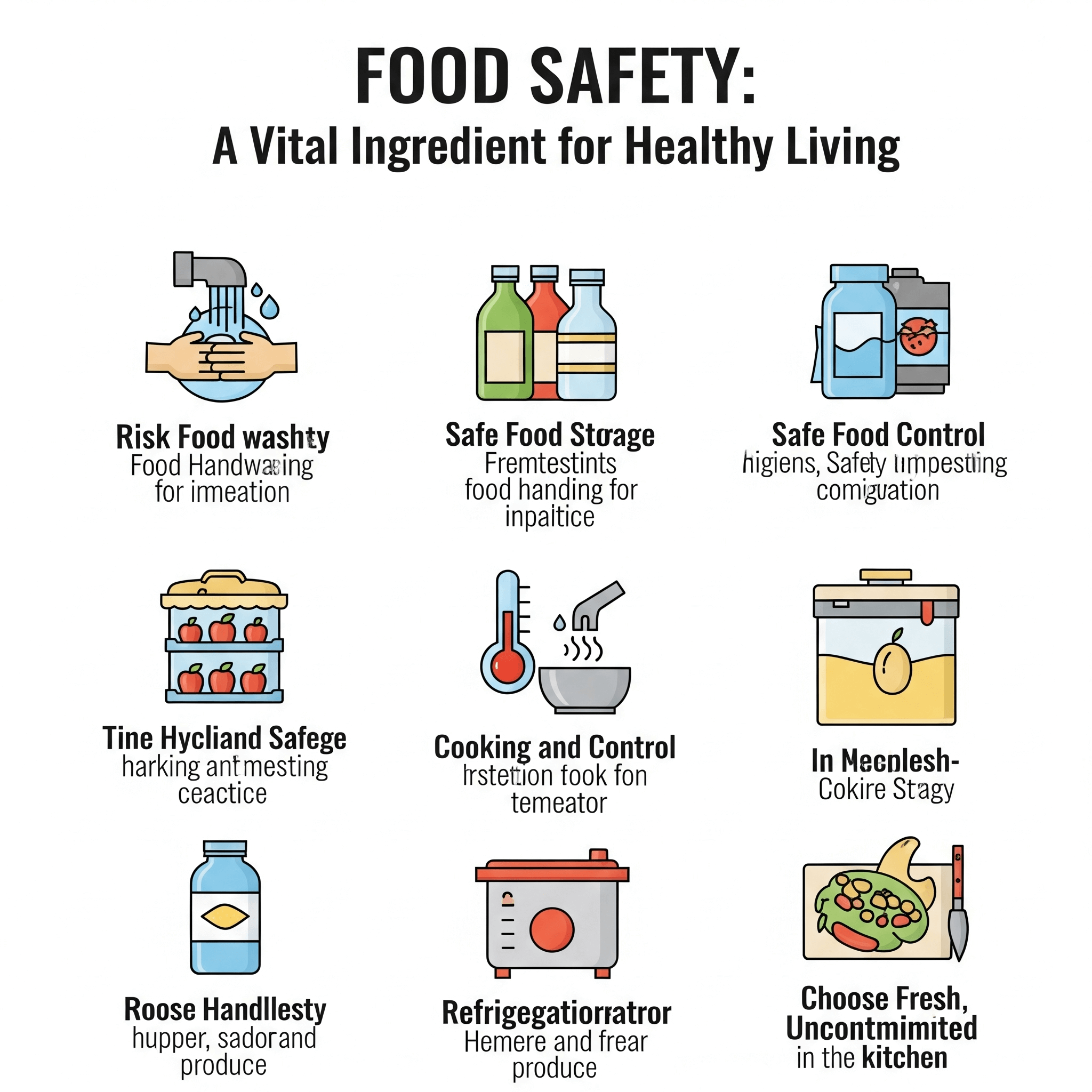Food Safety: A Vital Ingredient for Healthy Living
Food safety is an essential aspect of public health that ensures the food we consume is safe, wholesome, and free from harmful contaminants. It involves the proper handling, preparation, and storage of food to prevent foodborne illnesses, which affect millions of people globally each year. With the growing complexity of global food systems, maintaining food safety has become more important than ever.
Contamination can occur at any stage of the food chain—from farm to table. Common sources of contamination include bacteria like Salmonella, E. coli, and Listeria, as well as viruses, parasites, and chemical residues. Poor hygiene, inadequate cooking, unsafe storage, and cross-contamination are frequent causes of foodborne diseases. Symptoms can range from mild discomfort to severe illness, and in some cases, can even be fatal, particularly for young children, the elderly, pregnant women, and those with weakened immune systems.
To ensure food safety, several best practices should be followed. These include washing hands and surfaces regularly, cooking food to the right temperature, keeping raw and cooked foods separate, and refrigerating perishables promptly. Proper food labeling and awareness about expiration dates are also critical in preventing the consumption of spoiled or unsafe food.
Governments and international organizations like the World Health Organization (WHO) and the Food and Agriculture Organization (FAO) play a crucial role in enforcing food safety standards. They set regulations for food production, import and export, and conduct inspections to ensure compliance. Public education campaigns also help raise awareness about safe food practices at the household level.
In recent years, technological advancements such as blockchain for supply chain transparency, smart sensors for freshness, and improved testing methods have further enhanced food safety. However, the responsibility does not lie solely with authorities or food producers. Consumers must also stay informed and practice vigilance in their everyday food choices and habits.
In conclusion, food safety is not just a matter of health—it is a shared responsibility and a cornerstone of food security. By following safe food practices and supporting effective regulations, we can all contribute to reducing foodborne illnesses and promoting a healthier society. After all, safe food is not a luxury; it is a fundamental right and a necessity for all.


Leave a Reply
You must be logged in to post a comment.